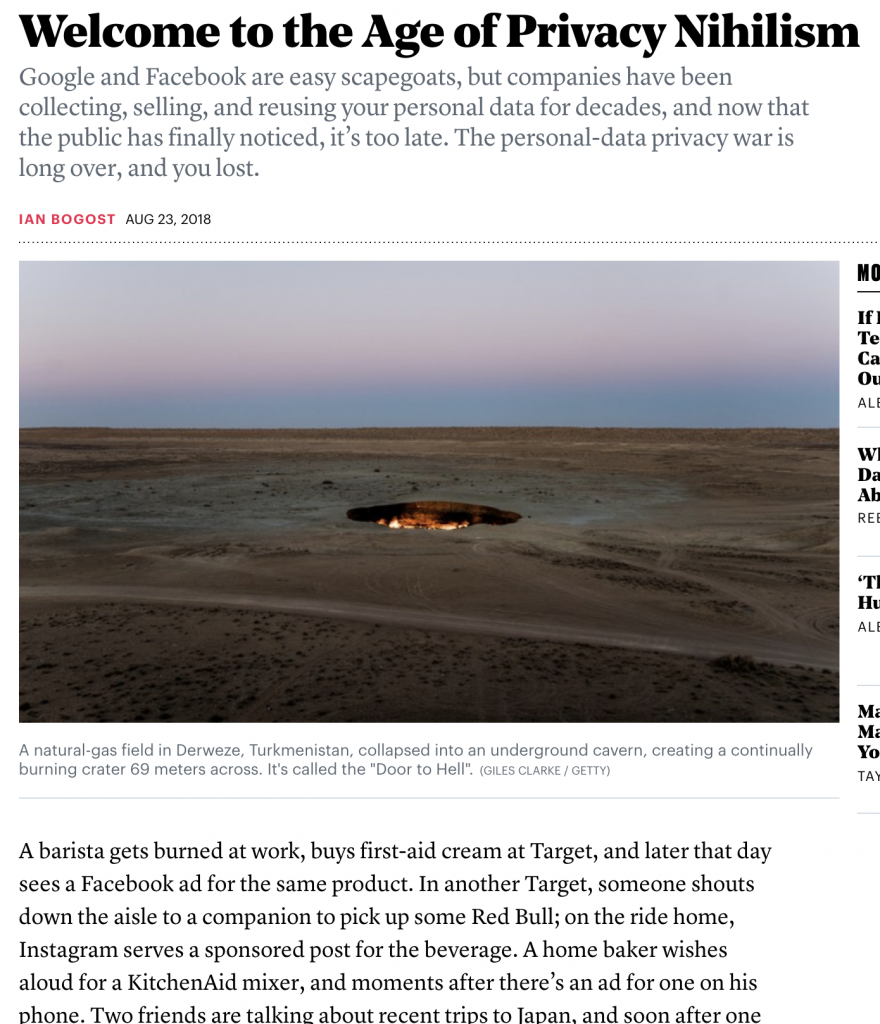The first section focuses on the difference between data and technology, two terms that are often conflated. The anecdote about seafaring is used as a clear lens through which to read the rest of the chapter. I was interested in the claim that “Amazon understand the value of digitizing content, while Google understands the value of datifying it.” My initial reaction was that this feel uninformed as it fails to consider the ways that Amazon does datify, just not in plain sight. Yes, I can see bar graphs on Google of other people’s searches, but Amazon has quietly datafied in such a way that the items marketed to me are no coincidences. In general, this was something that I had wished was discussed more in the chapters we read (although it’s probably discussed in other parts of the book). Data is incredibly useful to us when we are aware of it, but what about when we are not?
Reading these chapters, I was forced to reconsider my preconceptions about human advancement. The idea that tech is our next “big thing” is basically undermined by the disparateness between data and tech. The “technological age” is not on the same timeline as say, the stone or industrial ages. This begs the categorical question. If our tech-crazed culture is not, in itself, a landmark moment of advancement, then what is? Our ability for complex communications? What does it mean that so many get left behind from these cultural changes?
One of the other items discussed is very timely. They introduce social credit ideas, which I’ve seen on Black Mirror and is literally underway in China right now. It will be interesting to see how the mass data is used to help (or more likely hurt) society at large.
I loved the Privacy/Punishment chapter that references Minority Report. It’s always been one of my favorite movies (don’t judge me) so I’ve thought a lot about this. The ethical questions need to precede the technical ones, but I suspect they won’t. Why are people trying to predict crime for punitive purposes? It’s frightening that this what we build by default, as opposed to a data-driven system that could prevent crime by preventing the CAUSES of certain crime.
At the end of chapter eight, the authors bring up the precarious future of free will. This, to me, seemed like the most likely place to find our society’s next large-scale change. Digitizing collected data makes our world more accessible, but becoming collected data would change our relationships with ourselves and each other.


 Hello everyone, and welcome to the class blog for DATA 74000: Data, Place, and Society. Here’s what you should do first:
Hello everyone, and welcome to the class blog for DATA 74000: Data, Place, and Society. Here’s what you should do first:
